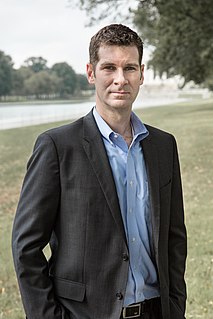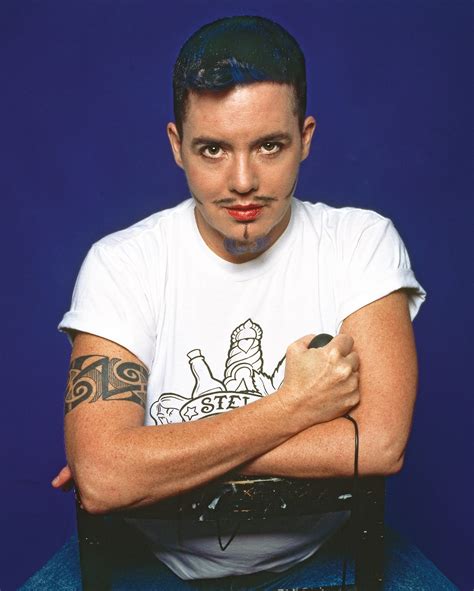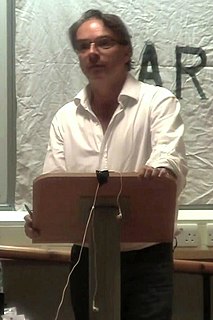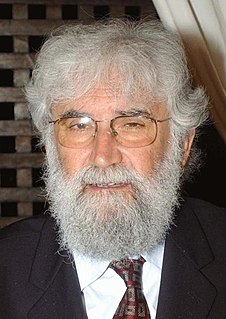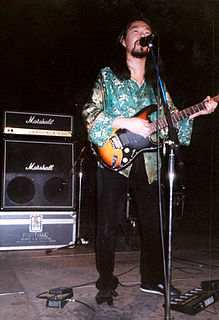Top 956 Technologies Quotes & Sayings - Page 16
Explore popular Technologies quotes.
Last updated on April 15, 2025.
Let there be no doubt. Alien technology harvested from the infamous saucer crash in Roswell, N.Mex., in July 1947 led directly to the development of the integrated circuit chip, laser and fiber optic technologies, Particle beams, Electromagnetic propulsion systems, Depleted uranium projectiles, Stealth capabilities, and many others! How do I know? I was in charge! A matter of public record I think the kids on this planet are wise to the truth, and I think we ought to give it to them. I think they deserve it.
Space exploration must be undertaken not only out of simple human curiosity but also to further the survival of the species. The twentieth century has seen the unprecedented development and proliferation of magnificent technologies. Many of them, through design, ignorance, or misuse, are capable of destroying life as well as enhancing it. Space exploration alone holds the promise of eventual escape from a dying planet, provided we wisely manage our resources in the meantime and actually survive that long.
We call it EPCOT, spelled E-P-C-O-T: Experimental Prototype Community of Tomorrow. Here it is in larger scale. EPCOT will take its cue from the new ideas and new technologies that are now emerging from the creative centers of American industry. It will be a community of tomorrow that will never be completed, but will always be introducing and testing and demonstrating new materials and systems. And EPCOT will always be a showcase to the world for the ingenuity and imagination of American free enterprise.
It's very clear that there are greater threats to these ships since, arguably, World War II. There are new technologies that can now reach them and make them harder to defend, such as anti-ship missiles, combined with space based tracking. The bigger issue, though, is who are gaining those capabilities. With what's going on with China and Russia, we are returning to geopolitical state-by-state competition. The Navy has not had to fight a peer for control of the sea since the Battle of Midway 75 years ago.
I think in the '80s, when I started making films, we were all suspicious of these technologies. We were all convinced they would filter out any emotion and sense of intimacy, and the films I made during that period reflected that. In fact, what has happened is the opposite. I think we're saturated with a degree of intimacy we would never have expected, and we're trying to sort through this idea of complete access to each other's lives on an ongoing basis. Our emotions aren't filtered out at all. They're actually accelerated.
With the egoic consciousness having become so dysfunctional, and now having at our disposal all these enormous technologies and scientific advances, if nothing changes the ego will use those things - as it already has been doing - and will amplify the technology that we now have. The scientific advances, to a large extent, will be used in the service of the ego, and they will become more and more destructive.
There is a connection waiting to be made between the decline in democratic participation and the explosion in new ways of communicating. We need not accept the paradox that gives us more ways than ever to speak, and leaves the public with a wider feeling than ever before that their voices are not being heard. The new technologies can strengthen our democracy, by giving us greater opportunities than ever before for better transparency and a more responsive relationship between government and electors
Both instruments are processors of information. Both appeared when nothing quite like them had existed before, and both began to make their effects felt immediately (a situation that isn't invariable with new technology). Both devices were less the result of a single breakthrough than of an evolving set of technologies. Like the computer, the printing press had no one certain inventor; it was a technology whose time had come.
Government investment unlocks a huge amount of private sector activity, but the basic research that we put into IT work that led to the Internet and lots of great companies and jobs, the basic work we put into the health care sector, where it's over $30 billion a year in R&D that led the biotech and pharma jobs. And it creates jobs and it creates new technologies that will be productized. But the government has to prime the pump here. The basic ideas, as in those other industries, start with government investment.
I think that internet technologies are making everything so transparent. The arms race of deception and spin against the public trying to keep up with it - I think the forces of spin have to lose. In the corporate world people are finding this. Corporate social responsibility has been on the agenda for a very long time - and a lot of people say it's a kind of green-wash or white-wash - but because there's nowhere to hide anymore, people are coming around to the realization that the only way to be seen to be good is to be good. You can't fake it.
Innovating Women is more important today than ever. Things are changing for the better. The recent announcements by Google, LinkedIn, Yahoo, and Facebook of their diversity numbers—and a pledge to improve these—are the most recent victories. The Boys Club is under fire and is trying to reform itself. Women are achieving success and helping each other. Advancing technologies are leveling the playing field. Women are in the catbird seat for the new era of exponential innovation. This is the time to inspire and motivate—and that is what Innovating Women will surely do.
As a gender variant visual artist I access 'technologies of gender' in order to amplify rather than erase the hermaphroditic traces of my body. I name myself. A gender abolitionist. A part time gender terrorist. An intentional mutation and intersex by design, (as opposed to diagnosis), in order to distinguish my journey from the thousands of intersex individuals who have had their 'ambiguous' bodies mutilated and disfigured in a misguided attempt at 'normalization'. I believe in crossing the line as many times as it takes to build a bridge we can all walk across.
Architects in urban planning are talking about this but they're not talking about it yet I don't think at that level that [Buckminster] Fuller is talking about when he talked about putting a dome over Manhattan, which is to say an attempt at integrating all of these different technologies in a way that makes for a city that, without having an actual dome, thermodynamically manages the heat flow for that urban environment and therefore makes it so that it is a highly efficient machine for a living or a dwelling machine as he would have preferred in terms of thermodynamically optimizing it.
The various roles we incorporate into the criminal justice system as well as the ways in which we construe such roles, lend themselves to the kind of ethical reflection that is open to us all. That said, once we have determined roles and their contours, those who act within them may have special duties and privileges that others may lack. Specific roles may generate ethical inquiries with novel forms, just as new technologies may push us in new directions.
With the rise of new technologies, media, and other cultural apparatuses as powerful forms of public pedagogy, students need to understand and address how these pedagogical cultural apparatuses work to diffuse learning from any vestige of critical thought. This is a form of public pedagogy that needs to be addressed both for how it deforms and for how it can create important new spaces for emancipatory forms of pedagogy.
Our marvelous new information technologies boost our power and opportunities for political engagement, but they can also disempower us by contributing to extreme political mobilization that sometimes overwhelms our institutions. These institutions were designed for rural societies operation at a tiny fraction of today's speed and with a citizenry vastly less capable that today's. It's unclear how they will change to adapt to the new reality, but change they must.
The link between literacy and revolutions is a well-known historical phenomenon. The three great revolutions of modern European history -- the English, the French and the Russian -- all took place in societies where the rate of literacy was approaching 50 per cent. Literacy had a profound effect on the peasant mind and community. It promotes abstract thought and enables the peasant to master new skills and technologies, Which in turn helps him to accept the concept of progress that fuels change in the modern world.
Generally, the technology that enables disruption is developed in the companies that are the practitioners of the original technology. That's where the understanding of the technology first comes together. They usually can't commercialize the technology because they have to couple it with the business model innovation, and because they tend to try to take all of their technologies to market through their original business model, somebody else just picks up the technology and changes the world through the business model innovation.
Tonight, I propose a 21st Century Crime Bill to deploy the latest technologies and tactics to make our communities even safer. Our balanced budget will help put up to 50,000 more police on the street in the areas hardest hit by crime, and then to equip them with new tools from crime-mapping computers to digital mug shots. We must break the deadly cycle of drugs and crime.
You grow the fastest by getting... adopting ideas and technologies from other cultures. And that has been proven in history, time and time again. Whether you go back to the ancient Persians, or the Romans, or the Ottomans. It's how a culture grows, by incorporating other ideas and going, wow, how did they do this? Oh, I bet you this works with this, and then you can improve it again. So I think any culture that sort of says, no no no, it's just us, nobody gets in anymore, it's the beginning of atrophy, and the rest of the world will just pass you.
I think that every educator, indeed every human being, is concerned with what is true and what is not; what experiences to cherish and which ones to avoid; and how best to relate to other human beings. We differ in how conscious we are of these questions; how reflective we are about our own stances; whether we are aware of how these human virtues are threatened by critiques (philosophical, cultural) and by technologies (chiefly the digital media). A good educator should help us all to navigate our way in this tangled web of virtues.
I've come up with a set of rules that describe our reactions to technologies: 1. Anything that is in the world when you’re born is normal and ordinary and is just a natural part of the way the world works. 2. Anything that's invented between when you’re fifteen and thirty-five is new and exciting and revolutionary and you can probably get a career in it. 3. Anything invented after you're thirty-five is against the natural order of things.
The marriage of reason and nightmare which has dominated the 20th century has given birth to an ever more ambiguous world. Across the communications landscape move the specters of sinister technologies and the dreams that money can buy. Thermonuclear weapons systems and soft drink commercials coexist in an overlit realm ruled by advertising and pseudoevents, science and pornography. Over our lives preside the great twin leitmotifs of the 20th century-sex and paranoia.
f the government is going to put money into the automobile sector, it should break up GM and Chrysler as a condition of financial aid, and it should be even-handed in its treatment of start-up firms like Tesla, Miles, Fisker, and others. It would be terrible to kill the entrepreneurs who have taken great risks to bring new automotive technologies to market by pumping tax dollars into the behemoths that have done everything wrong for the last years.
What's happening now with technology is we live with very porous boundaries. All those little interruptions fragment our time and attention and make us feel like work never ends. It makes us feel like we don't ever have that sacred time for family or to breathe or meditate or for leisure. Time is contaminated for everyone. I'm hoping that as we get used to these technologies we'll get smarter about how we use them and also how to shut them off.
In general, workers under 35 highly value Millennials' ability to relate, be helpful, be open-minded, and be understanding. Employees over 35 appreciated their energy, enthusiasm, open-mindedness, fresh perspective, and understanding of new technologies. It is interesting, in my early research, Millennials entering the workforce reported advantages they claimed to have in the workplace. The advantages turn out to be strengths that are recognized in them as managers.
I believe that a desirable future depends on our deliberately choosing a life of action over a life of consumption, on our engendering a lifestyle which will enable us to be spontaneous, independent, yet related to each other, rather than maintaining a lifestyle which only allows to make and unmake, produce and consume - a style of life which is merely a way station on the road to the depletion and pollution of the environment. The future depends more upon our choice of institutions which support a life of action than on our developing new ideologies and technologies.
Why does it seem to be more and more challenging to find a perfect mate or maintain a happy and compatible relationship? Was love always this difficult? Haven't we heard stories of people being truly fulfilled and happy in love? Is love a myth? There are more people on the planet than ever before, and traveling the world has never been easier. Not only that; now we can use technologies like the Internet to connect with others. So what is the problem? Why does it seem to be more complicated than ever to meet the right person and live happily ever after?
North Korea continues to advance its nuclear technology and will soon reach weaponization. Regarding its intercontinental ballistic missiles, it is continuously making progress. So currently, it is urgent for us to freeze North Korea's program so they will stop additional provocations and stop advancement of its technologies. I believe during my upcoming summit meeting in the U.S. I will be able to discuss a two-phased approach to the North Korean nuclear issue - the first being a freeze and the second being complete dismantlement.
We have always dovetailed our cognition to our tools, but when our tools start dovetailing back, where do I end and where does the tool begin? It is going to be a really Twilight Zonish situation. It is definitely interesting. Once Google is in a blood cell sized device in our brain, do we become part Google? There are certainly interesting things to think about and provocative questions, but I don't think those provocative questions are going to do anything to slow down the onset of these technologies arriving and becoming even more pervasive.
Oil platforms are a technology for floating permanently on the high seas, and cruise ships are a technology for self-governance on the high seas, and if you combine these two technologies, imagine cruise ships that never dock but float permanently. Imagine if they were 10 times as big. Imagine if they were modular and could move about and you could choose the neighbours you wanted to live with.
I'm all in favor of being able to imagine new frontiers with the aid of technologies, but I want a more compassionate approach that also recognizes that every time you're talking about new frontiers, there will be certain kinds of costs attached. There will be people who don't quite understand how to handle email who will decide to have private servers and then not know how to excuse themselves when it may be something as simple-minded as they were a little too far along in their lives to really figure out how to go back and forth between two different accounts.
The widespread inability to understand technological artifacts as fabricated entities, as social and cultural phenomena, derives from the fact that in retrospect only those technologies that prove functional for a culture and can be integrated into everyday life are 'left over.' However, the perception of what is functional, successful and useful is itself the product of social and cultural--and last but not least--political and economic processes. Selection processes and abandoned products and product forms are usually not discussed.
I know we need more nuclear power in order - nuclear power, after all, is not dependent on fossil fuels and emits no greenhouse gases. I believe we're going to be able to have coal-fired plants that have zero emissions. We need to work on carbon sequestration technologies. I mean, there's a lot we can do together and achieve the objective, which a lot of people want, which is the reduction of greenhouse gases, and at the same time, have viable economic growth.
In the next century, we will be inventing radical new technologies - machine intelligence, perhaps nanotech, great advances in synthetic biology and other things we haven't even thought of yet. And those new powers will unlock wonderful opportunities, but they might also bring with them certain risks. And we have no track record of surviving those risks. So if there are big existential risks, I think they are going to come from our own activities and mostly from our own inventiveness and creativity.
When thinking about how to deploy kind of professional and social networking into your business, it's really not a question of if, it's a question of when. And the reason is, just think about the fact that those businesses that adopt new technologies to operate efficiently and use them to get a competitive edge are the businesses that in fact, you know, it becomes one more competitive advantage. Whether it's a fax machine or a mobile phone or a new way of doing financing or any of these things, you know, these are key things to do.
A competitive threat is not the same thing as an antitrust violation… It is difficult to make out FairSearch’s precise antitrust arguments. There are alternatives to ITA’s software: both the GDSs but also upstarts such as the U.K.’s Everbread Ltd., which has relationships with 60 low-cost carriers, and Vayant Travel Technologies LLC of New York. It isn’t clear, therefore, that competition would be reduced even if Googled didn’t honor ITA’s contracts with other travel companies.
It is irrational to charge high prices for socially valuable innovations as this guarantees that they will be underutilized. It is much better to sell them at cost and then to reward the innovator in some other way. This is not always possible, because in some cases the value of an innovation is in the eye of the beholder; it's very difficult to value how much a new Madonna song is worth, for example. But in the case of medicines, green technologies and seeds in agriculture, such an alternative reward mechanism is fairly straightforward.
One of the reasons I think people are increasingly nervous about U.S. debt is because they think that we are not actually digging ourselves out of the hole, but instead are digging ourselves into a deeper and deeper hole and will not be able to pay it back because we're not actually creating the new technologies that will enable us to pay back and the money somehow is not really being invested in the future or in progress.
Our ingenuity in feeding ourselves is prodigious, but at various points our technologies come into conflict with nature's ways of doing things, as when we seek to maximize efficiency by planting crops or raising animals in vast mono-cultures. This is something nature never does, always and for good reasons practicing diversity instead. A great many of the health and environmental problems created by our food system owe to our attempts to oversimplify nature's complexities, at both the growing and the eating ends of our food chain.
It is much easier to make intellectual messes than it is to clarify complicated issues, especially when real solutions would challenge the status quo and require much careful thought across many fields of knowledge. Problems of climatic change, biotic impoverishment, population growth, and the choices to be made by various technologies and the transition to a sustainable and decent society with an economy that works over the long-term are difficult, complex, and intertwined problems with many possible answers.
Over his illustrious career, John Harris has explored the most challenging bioethical questions with insight, engaging wit, and eloquence. In Enhancing Evolution, Harris does it again. He argues that it is not just an option but an obligation for people to use available biomedical technologies to enhance their own--and their children's--physical and mental abilities. Harris rightly deserves his reputation for fearlessly following his ethical arguments wherever they lead.
Today social justice represents one of the most serious challenges to the conscience of the world. The abyss between those who are within the world 'order' and those who are excluded is widening day by day. The use of leading-edge technologies has made it possible to accumulate wealth in a way that is fantastic but perverse because it is unjustly distributed. Twenty-percent of humankind control eighty percent of all means of life. That fact creates a dangerous imbalance in the movement of history.
Is Islam a tribe or is it a force of globalization? Islam has certainly been studied as a local, tribalistic phenomenon. But Islam is also theoretically a universalist idea, its spread has been facilitated by modern technologies, and it's an identity that people can slip into and out of fairly easily. I don't think Islam has really been understood as a product of globalization. It might be one of these instances where globalism and tribalism ultimately go hand in hand.
The technologies that will be most successful will resonate with human behaviour instead of working against it. In fact, to solve the problems of delivering and assimilating new technology into the workplace, we must look to the way humans act and react. In the last 20 years, US industry has invested more than $1 trillion in technology, but has realised little improvement in the efficiency of its knowledge workers and virtually none in their effectiveness. If we could solve the problems of the assimilation of new technology, the potential would be enormous.
Technologies of easy travel "give us wings; they annihilate the toil and dust of pilgrimage; they spiritualize travel! Transition being so facile, what can be any man's inducement to tarry in one spot? Why, therefore, should he build a more cumbrous habitation than can readily be carried off with him? Why should he make himself a prisoner for life in brick, and stone, and old worm-eaten timber, when he may just as easily dwell, in one sense, nowhere,-in a better sense, wherever the fit and beautiful shall offer him a home?
The Lord has made available in our day remarkable resources that enable you to learn about and love this work that is sparked by the Spirit of ElijahIt is no coincidence that FamilySearch and other tools have come forth at a time when young people are so familiar with a wide range of information and communication technologies. Your fingers have been trained to text and tweet to accelerate and advance the work of the Lord-not just to communicate quickly with your friends. The skills and aptitude evident among many young people today are a preparation to contribute to the work of salvation.
We are too much in the machine world today. Even here in Tuva we've got every year more and more cars and other technologies, and of course it brings more pollution to our air, to nature. And I think the idea of the Kraftwerk song is people should not be very much mechanized or to be a machine in the world of machines. The idea is to try to find a golden middle between the world of nature and the world of machines.
If you look at the last 150 years, about every 30 years or so, a new scientific discipline emerges that starts spinning out technologies and capturing people's imaginations. Go back to 1900: That industry was chemistry. People had chemistry sets. In the 1930s, it was the rise of physics and physicists. They build on each other. Chemists laid the experimental understanding for the physicists to build their theories. It was three physicists who invented the transistor in 1947. That started the information revolution. Today, kids get computers.
We do not need to invent sustainable human communities. We can learn from societies that have lived sustainably for centuries. We can also model communities after nature's ecosystems, which are sustainable communities of plants, animals, and microorganisms. Since the outstanding characteristic of the biosphere is its inherent ability to sustain life, a sustainable human community must be designed in such a manner that its technologies and social institutions honor, support, and cooperate with nature's inherent ability to sustain life.
New information technologies-including email, the web, and computerized blast-faxes and phone calls-have fundamentally changed the landscape of political competition in modern democracies. They've done so in three ways: by dramatically boosting the access of individuals and special interests to politically potent information, by making it easier for such people to coordinate their activities and exert political power, and by greatly increasing the pace of events within our political systems.
With enough money and international coordination, we can push incoming asteroids out of Earth's path. We might even be able to bring back extinct animals in the lab. The problem really isn't scientific - it's cultural. We aren't yet able to coordinate ourselves as a global civilization to do something simple like bring food to a famine-stricken region. We can actually use current satellite technologies to predict where famine will strike next, but we can't get food there - usually for political reasons.
Back in the 1980s, when the internet was only available to a small number of pioneers, I was often confronted by people who feared that the strange technologies I was working on, like virtual reality, might unleash the demons of human nature. For instance, would people become addicted to virtual reality as if it were a drug? Would they become trapped in it, unable to escape back to the physical world where the rest of us live? Some of the questions were silly, and others were prescient.
Providing clean, efficient solar/electric generators to industries such as oil companies, spanning from film and event production, construction, disaster relief, agriculture, forestry, and nonprofit organizations. We're literally helping green oil companies, helping them find ways to pollute less while creating jobs. When I look at the breadth of positive impact these technologies can have, I truly get excited. Imagine a generator where ZERO fuel is used!
I like the iPhone, the iPad, all the various members of that family. But I like all the various technologies that are becoming available to make the world more accessible to people who are blind and with low vision. I also like that more and more people are committing themselves to close captioning so the deaf can really know what's going on. I like the position of making buildings more accessible by having ramps and various ways people who are paraplegic to be able to get around.



